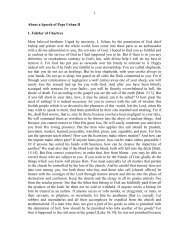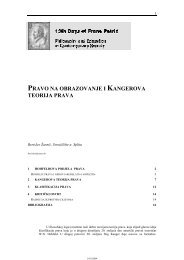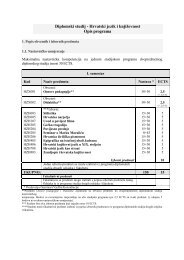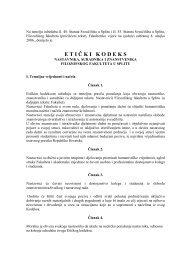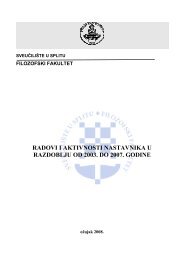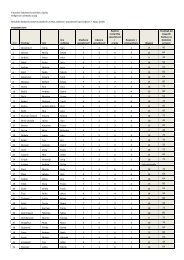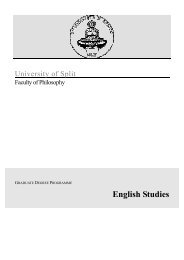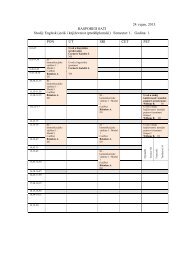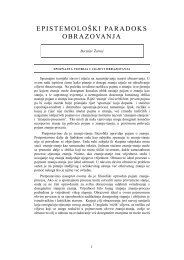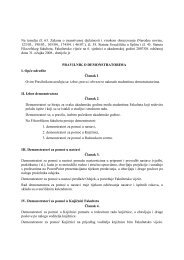Understanding Human Communication
Understanding Human Communication
Understanding Human Communication
You also want an ePaper? Increase the reach of your titles
YUMPU automatically turns print PDFs into web optimized ePapers that Google loves.
power: Even in groups who begin with no official leader, members<br />
can acquire legitimate power by the acknowledgment of<br />
others. Juries elect forepersons, and committees elect chairpersons.Teams<br />
choose a captain. Negotiating groups elect spokespeople.The<br />
subject of leadership emergence has been studied extensively.<br />
24 Researchers have discovered several communicator<br />
characteristics that members who emerge as leaders possess:<br />
They speak up in group discussions without dominating others,<br />
they demonstrate their competence on the subject being discussed,<br />
they observe group norms, and they have the support<br />
of other influential members.<br />
COERCIVE POWER Coercive power occurs when influence<br />
comes from the threat or actual imposition of some unpleasant<br />
consequences. In school, at home, on the job, and in many other<br />
settings we sometimes do what others tell us, not because<br />
of any respect for the wisdom of their decisions but rather<br />
because the results of not obeying would be unpleasant.<br />
Economic hardship, social disapproval, undesirable work, even<br />
physical punishment—all are coercive forces that can shape<br />
behavior.<br />
There are three reasons why coercion usually isn’t the most effective<br />
type of power. First, it’s likely to create a negative communication<br />
climate, because nobody likes to be threatened. Second,it<br />
can produce what has been called a “boomerang effect”in<br />
which a member who is threatened with punishment resists by doing exactly<br />
what the other members don’t want.Third, coercion alone may tell others what<br />
not to do, but it doesn’t tell them what you do want them to do.Telling an unproductive<br />
member,“If you can’t contribute useful information,we’ll kick you out<br />
of the group” doesn’t offer much advice about what would count as “useful information.”<br />
Social scientists say that coercion has the best chance of success when it involves<br />
denial of an expected reward rather than the imposition of a negative consequence.<br />
25 For example, canceling an upcoming vacation of a working group<br />
who doesn’t meet its deadline is better than reducing employees’ salaries. Even<br />
under circumstances like this, however, coercion alone is not as effective as the<br />
next kind of power, which involves rewards.<br />
REWARD POWER Reward power exists when others are influenced by the<br />
grant or promise of desirable consequences. Rewards come in a variety of<br />
forms.The most obvious are material reinforcers:money,awards,and so on.Other<br />
rewards can be social in nature.The praise of someone you respect can be a powerful<br />
motivator. Even spending time with people you like can be reinforcing.<br />
Rewards don’t come only from the official leader of a group.The goodwill of<br />
other members can sometimes be even more valuable. In a class group, for example,having<br />
your fellow students think highly of you might be a more powerful<br />
reward than the grade you could receive from the instructor.In fact,subordinates<br />
sometimes can reward nominal leaders just as much as the other way around. A<br />
boss might work hard to accommodate employees in order to keep them<br />
happy, for example.<br />
CHAPTER 9 SOLVING PROBLEMS IN GROUPS 309



